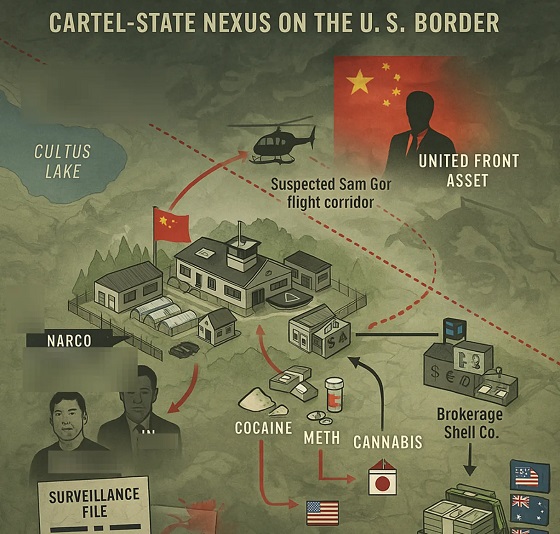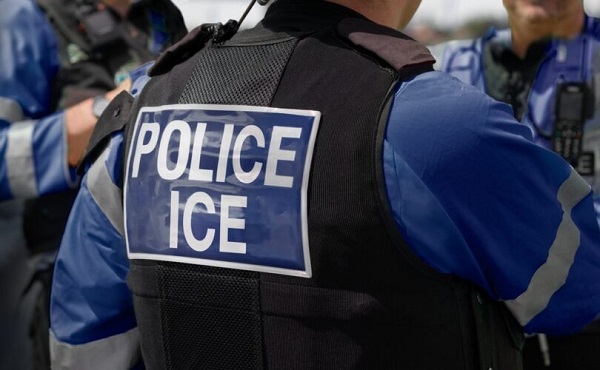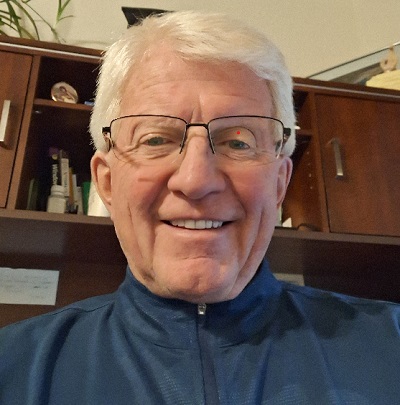Crime
Inside B.C.’s Cultus Lake Narco Corridor — How Chinese State-Linked Syndicates are Building a Narco Empire in Canada

Many of the properties of concern are large-acreage farms with cannabis licenses dating back decades—once controlled by B.C. biker gangs, but quietly consolidated since the early 2000s under the influence of figures linked to the Sam Gor syndicate.
Nestled in British Columbia’s Fraser Valley, hugging the U.S. border, Cultus Lake is surrounded by towering rainforest pines—a postcard image of Canada’s serene beauty. Shaped by the last Ice Age, the south shore’s cavernous ridges form the Columbia Valley, which snakes into Washington State—sparsely populated, with no official border crossing, and peopled mostly by large ranch owners. But the pristine corridor conceals deadly secrets with geopolitical consequences.
According to multiple Canadian intelligence experts, significant Columbia Valley properties have been quietly seized as strategic high ground by associates of the notorious Sam Gor narco syndicate, operating in tandem with agents of the Chinese state’s security and foreign influence apparatus.
“The number of people—nefarious people—who have places down there, it’s quite phenomenal,” an intelligence analyst not authorized to be named said.
“It’s a very difficult place to do any surveillance on. Not a lot of properties, big properties—and anybody that doesn’t have a local license plate or something from there, they just get spotted right away.” Combine that with its location—adjacent to the U.S. border—and, the source added, “it’s got to be some of the most favorable area in the Lower Mainland to be doing any kind of cannabis stuff or drug smuggling.”
Experts describe what amounts to a special zone of Chinese crime and influence activities—tied clandestinely to Beijing in function, if not officially—a secure enclave where key properties have been tied to covert cross-border helicopter operations.
Many of the properties of concern are large-acreage farms with cannabis licenses dating back decades—once controlled by B.C. biker gangs, but quietly consolidated since the early 2000s under the influence of figures linked to the Sam Gor syndicate. The networks tied to these estates, sources say, not only profit from cannabis and sophisticated money laundering brokerages that transfer illicit proceeds—ultimately benefiting the Chinese state—but are also linked to Beijing’s so-called “CCP police station” activities, and numerous significant investigations into fentanyl, methamphetamine, heroin, cocaine, and Chinese precursor imports.
According to one source familiar with U.S. government investigations in British Columbia, one Columbia Valley property stands out with exceptional urgency. Spanning roughly 30 acres and situated steps from the U.S. border, the estate has triggered alarms among The Bureau’s national security sources—not only due to its strategic location, but because of the individuals connected to it.
Chief among them: Sam Gor himself, the syndicate’s elusive boss, a Chinese Canadian named Tse Chi Lop. Of equal or greater concern: a senior Chinese security and intelligence figure with ties to Sam Gor’s upper command, and individuals associated with Chinese mining and chemical interests and Beijing’s United Front Work Department.
According to RCMP sources, the site has also been linked to numerous narcotics investigations in Western Canada and cross-border helicopter activity into Washington State—escalating it from regional concern to a geopolitical flashpoint between Ottawa and Washington.
Among other key figures linked to the property: Peter Lap-San Pang, a Toronto-based alleged Sam Gor associate named in a British Columbia civil forfeiture case involving a suspected illegal mansion casino; and Ye Long Yong, a convicted Sam Gor “kingpin” identified in Canadian court files for importing, exporting, and trafficking heroin, methamphetamine, and cocaine. During a parole hearing, Ye told officials that “a successful person in Toronto gave” him his drug business.
The parole records noted: “There was a great deal of effort from many police organizations from all around the world, with interpreters in several languages and evidence gathered for a long period of time in order to infiltrate and bring down Mr. YE’s criminal organization.”
Also tied to the property is a United Front–associated “Big Circle Boy” contemporary of Tse Chi Lop, who was named in B.C.’s anti-money laundering inquiry as the superior of Paul King Jin—the notorious boxing gym owner, loan shark, and money laundering suspect at the center of Canada’s largest-ever casino money laundering investigation, E-Pirate.
These are just several of the “many other Sam Gor members” associated with this 30-acre farm on the U.S. border, a source said—individuals who have surfaced repeatedly in B.C.’s highest-profile organized crime investigations over the past two decades, including the E-Pirate case.
Most of the Sam Gor and Chinese state-linked suspects tied to this particular Chilliwack-area border property—with the exception of Tse Chi Lop—remain less publicly known than Paul King Jin, whose notoriety has steadily grown since the Vancouver Sun’s 2017 revelations about the RCMP’s failed E-Pirate probe. Jin later survived a high-profile targeted shooting at Richmond’s Manzo restaurant in 2020—an attack that killed his business partner, Jian Jun Zhu, another Sam Gor leader allegedly behind the Silver International operation. That Richmond-based scheme—now infamous for revealing the “Vancouver Model” of money laundering—is believed to have moved hundreds of millions in drug proceeds through a combination of government-regulated and underground casinos, with links to drug-cash banks embedded in diaspora communities across the Western Hemisphere, including Mexico, South America, and hundreds of Chinese bank accounts.
More recently, The Globe and Mail reported troubling information—verified by The Bureau—that Canadian security officials had clandestinely surveilled Jin and other Chinese businessmen privately meeting with then–Prime Minister Justin Trudeau in a Richmond hotel, during the height of the E-Pirate and related Chinese narcotics trafficking investigations in British Columbia.
The U.S. government’s concerns about transnational money laundering suspects tied to this nexus—including individuals connected to Columbia Valley properties and the private meeting with Prime Minister Trudeau—were underscored by a request for RCMP assistance in surveilling several Chinese nationals who, according to one source, arrived in Vancouver on a private jet.
Yet while Jin drew headlines in Canada, Sam Gor leader Tse Chi Lop—who holds Canadian citizenship—operated far more quietly across Vancouver, Toronto, Hong Kong, Macau, Taiwan, mainland China, and the United States prior to his arrest in the Netherlands several years ago. He has long been identified as a top figure in what former U.S. State Department investigator David Asher describes as the “command and control” layer of Chinese Communist Party-linked money laundering in Toronto and Vancouver, facilitating the financial operations of Mexican, Latin American, and Chinese cartels across the Western Hemisphere.
“Tse [Chi Lop] has a long history here [in British Columbia],” one Canadian intelligence expert said. “He’s connected to Jin and the network out here.” Regarding the elite Sam Gor members associated with significant Columbia Valley properties, they added: “There’s state interaction with some key components of those groups.”
One of the key figures associated by Canadian intelligence with the 30-acre Columbia Valley farm, Ye Long Yong, is also little known outside elite international law enforcement circles. But his role in Sam Gor’s transnational operations from Vancouver was extremely significant, an intelligence source said. Filings from his parole hearings underscore this, stating: “Mr. YE operated his criminal organization for years prior to his arrest. He demonstrated his ability to conceal his illegal activities from the authorities for many years.”
Pointing to yet another high-profile property near Cultus Lake, a different source said: “There’s another very, very significant Asian organized crime woman—she had a heavy influence out in that area, to do with cannabis. And she apparently had a lot of higher-level Chinese government connections.”
Another source, familiar with a federal investigation involving an organized crime figure flying a helicopter from the Cultus Lake region into U.S. territory, emphasized long-standing frustrations between allied agencies. “With the choppers and this area around Cultus Lake, I don’t think the Border Integrity team at Federal Serious and Organized Crime has ever truly continued paying attention,” the source said. “That’s why DEA and others are so pissed with the RCMP—not truly following up, not looking at the details. That corridor has been known for years.”
For Canadian intelligence veterans watching the pattern, the explanation points to more than simple organized crime. “This is for years to come,” one source said. “You set things in place in environments you can monitor, inside and out. Thinking like special forces—you pick the high ground, the environment where you can survey everything around you to maintain the integrity and safety of your product. That’s why the corridor is so special to organized crime. You can do that there.”
While these properties—and the alleged helicopter missions they support into the United States—offer a visceral glimpse of the threat posed by Chinese transnational networks engaged in poly-narcotics trafficking and money laundering, the deeper, state-linked financial architecture behind them is best illustrated by the RCMP’s startling findings. Investigators uncovered a global laundering network rooted in Vancouver-area brokerage houses, discreetly embedded in residential neighborhoods. These firms are tied to large-acreage land acquisitions across British Columbia used to cultivate cannabis for Asian organized crime.
Beneath the surface, authorities believe these operations fuel a broader system of poly-drug laundering, narcotics transshipment to other nations concealed within Canadian consumer exports, and coordination with Beijing’s foreign influence apparatus.
The Bureau will report next in this series on a groundbreaking investigation into the United Front brokerage system—an apparatus that facilitated narcotics trafficking from British Columbia into New York City and laundered drug proceeds from the United States back to Sam Gor and United Front networks in Vancouver.
There is mounting evidence that this same system—leveraging “legal” cannabis operations and money laundering brokerages tied to crime figures associated with Chinese consulate diplomats—is now suspected of operating not only in British Columbia but also in Ontario, with transnational reach into multiple U.S. states, including Maine.
Yet only fragments of evidence in official Canadian files hint at the “interoperability” between Chinese narco networks and the United Front Work Department, including its political influence arms.
British Columbia and Ontario have emerged as key battlegrounds where Chinese interference and triad-linked organized crime networks have deeply penetrated society. According to Canadian and U.S. experts who spoke with The Bureau, this includes the integration of the Sam Gor syndicate with Beijing’s intelligence and foreign influence apparatus, operating under the umbrella of the United Front Work Department.
Due to the sensitivity of the matter, the only expert identified in interviews is David Asher, who stated that the U.S. government views the United Front as the envelope surrounding China’s underground banking and financial networks—the same networks believed to have infiltrated TD Bank in Toronto.
Multiple Canadian police sources across British Columbia, Alberta, and Ontario confirmed that Chinese diplomats have been observed meeting with senior figures in Asian Organized Crime, including actors tied to the 30-acre “farm” property on the U.S. border near Cultus Lake.
The only known record pointing to official Canadian acknowledgment of these networks was first obtained by Global News in its reporting on Beijing’s Fox Hunt operations. The document—drafted at the request of B.C.’s Solicitor General in 2023—prompted the RCMP to prepare a classified briefing for Premier David Eby’s government. The version released under Freedom of Information legislation was completely redacted and titled: “The People’s Republic of China: Foreign Actor Influence Undertaken by the Chinese Communist Party / United Front Work Department & Interoperability with Transnational Organized Crime.”
Editor’s note: Come back to read The Bureau’s exclusive, paywalled investigation into United Front brokerage houses and illicit grow-ops—operations powered by exploited illegal immigrants.
The Bureau is a reader-supported publication.
To receive new posts and support my work, consider becoming a free or paid subscriber.
Invite your friends and earn rewards
Crime
1 dead, 2 injured after shooting at Dallas ICE facility

From LifeSiteNews
An ‘anti-ICE’ message was written on one of the rounds discovered near the shooter’s body, according to an image posted by FBI Director Kash Patel.
Just two weeks after the assassination of Charlie Kirk by a sniper’s bullet, one person was shot dead Wednesday morning by a “possible sniper” outside a Dallas ICE (U.S. Immigration and Customs Enforcement) facility. At least two others were injured.
The shooter, who had positioned himself on a nearby rooftop, died by a self-inflicted gunshot wound.
According to early reports, none of the killed or injured are ICE agents.
FBI Director Kash Patel posted to X an image of rounds allegedly found by the shooter’s body, one of which included an “anti-ICE” message.
This morning just before 7am local time, an individual fired multiple rounds at a Dallas, Texas ICE facility, killing one, wounding several others, before taking his own life. FBI, DHS, ATF are on the ground with Dallas PD and state authorities.
While the investigation is… pic.twitter.com/SMOyxiKLqA
— FBI Director Kash Patel (@FBIDirectorKash) September 24, 2025
“This is the third shooting in Texas directed at ICE or CBP [Border Patrol]. This must stop,” said Sen. Ted Cruz.
“To every politician who is using rhetoric demonizing ICE and demonizing CBP – stop. To every politician demanding that ICE agents be doxxed and calling for people to go after their families – stop. This has very real consequences.”
Vice President JD Vance said, “The obsessive attack on law enforcement, particularly ICE, must stop. I’m praying for everyone hurt in this attack and for their families.”
The obsessive attack on law enforcement, particularly ICE, must stop. I'm praying for everyone hurt in this attack and for their families. https://t.co/wEN3sqyGyQ
— JD Vance (@JDVance) September 24, 2025
This is the second attack in recent months on an ICE facility in Texas.
On July 4, a police officer was shot in the neck at the Prairieland Detention Center in Alvarado, southwest of Dallas. Eleven people have been charged in connection with that attack.
On August 25, a 36-year-old man was arrested for making a bomb threat against the Dallas ICE facility where Wednesday morning’s shooting took place.
Business
Public Safety Minister admits gun buyback program is waste of money and resources – 742,000,000 projected cost to taxpayers

From Conservative Party Communications
A decade of reckless Liberal soft-on-crime, bail-not-jail policies have left a majority of Canadians feeling unsafe in their own neighbourhoods with a justice system that works against them. Violent crime has increased by 55%, gun crime 130% and extortion 330%.
Instead of repealing their hug-a-thug laws that put criminals first and victims last, Mark Carney’s hapless Minister of Public Safety is pushing a failed gun buyback program that he admits is a waste of money that will do nothing to keep Canadians safe.
Yesterday, in a leaked recording, Public Safety Minister Gary Anandasangaree was caught telling the truth about the failed Liberal buyback boondoggle while breaching basic ethics:
The program is all for votes
“Quebec is in a different place than other parts of Canada, right? And this is something that is very much a big, big, big deal for many of the Quebec electorate that voted for us, right? And that’s one of the major things. I think it’s, I saw, I’m sure you’ve seen these articles where people said, you know, this is one of the things we should not execute, like as a change from Trudeau’s policies, but we’ve made the decision to go ahead.”
Carney forced me
“But this is the mandate I was given by Carney to complete this…if I were to redo this from scratch, I would have a very different process.”
I’ll pay you back
“In your case, what are your losses? You tell me, I’ll personally offset you.”
Ignore the law, I’ll bail you out
“I’m not going to send the police to you…I doubt (the program) is going to go that far…I will come and bail you out if that happens, I will. You call me.”
Mark Carney has admitted “the vast majority of firearms, illegal firearms, firearms used in crime come across our border,” yet the Liberals are continuing with a confiscation program that goes after legal, trained, tested and licensed Canadian firearms owners. That includes confiscating hunting rifles from Indigenous people exercising their treaty rights to hunt.
Anandasangaree’s buyback boondoggle is conservatively estimated to cost $742 million for a program the Minister himself admits is a waste of money and resources, pursued purely for political gain. $742 million represents 5,000 RCMP officers, 300 port scanners or 37,000 addiction treatment beds. That’s money that could go to restoring safety on our streets, ending gun smuggling and bringing our loved ones home drug-free.
Offering to bail out his tenant from criminal charges is not the first time Anandasangaree has been accused of not being impartial while upholding the law as Minister. After it was discovered he implored CBSA to overturn an immigration decision despite national security concerns, he was forced to recuse himself from files involving terrorist groups “to ensure that there is no perception of any conflict”. The Minister claimed he was simply helping a constituent, but that was also revealed to be a lie.
All of these failures stack on top of an abysmal record. The Minister has failed to ban the extortionist Bishnoi Gang and lost almost 600 non-citizen criminals in Canada, 70% of whom committed serious crimes such as sexual assault. In the pursuit of the buyback boondoggle, he’s also breaking his promise to add 1,000 RCMP and 1,000 CBSA officers.
These failures have real-world consequences: Canadians no longer feel safe in their own homes, and with good reason. This cannot go on. Mark Carney appointed Anandasangaree as Public Safety Minister. He must own up to his terrible judgment, hold his Minister accountable and fire Minister Anandasangaree.
-

 Business10 hours ago
Business10 hours agoOver $2B California Solar Plant Built To Last, Now Closing Over Inefficiency
-

 Autism2 days ago
Autism2 days agoAutism – what we know
-

 Alberta2 days ago
Alberta2 days agoFederal policies continue to block oil pipelines
-

 espionage1 day ago
espionage1 day agoCanada Under Siege: Sparking a National Dialogue on Security and Corruption
-

 Business9 hours ago
Business9 hours agoWEF has a plan to overhaul the global financial system by monetizing nature
-

 Business11 hours ago
Business11 hours agoThe Leaked Conversation at the heart of the federal Gun Buyback Boondoggle
-

 Business1 day ago
Business1 day agoGoogle Admits Biden White House Pressured Content Removal, Promises to Restore Banned YouTube Accounts
-

 Opinion10 hours ago
Opinion10 hours agoThe City of Red Deer’s financial mess – KPMG report outlines failure of council to control spending







